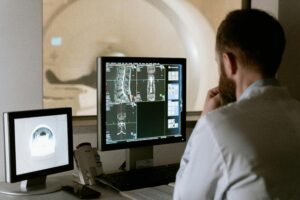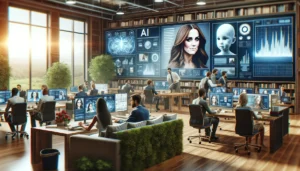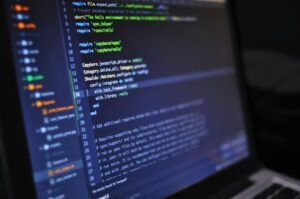AI Skyrockets Space Exploration to Dazzling Heights

In an age where the impossible becomes possible every day, a stunning 65% of all current space exploration projects now leverage Artificial Intelligence (AI) technologies. This staggering statistic is not just a number; it’s a gateway to a cosmos brimming with potential, driven by the fusion of AI and space science.
AI: The Cosmic Catalyst
The world of space exploration has been utterly transformed by AI. Consider SpaceX, Elon Musk’s brainchild, leveraging AI for autonomous docking in space. This isn’t just sci-fi—it’s reality. AI’s role in enhancing satellite imagery is another marvel. Planet Labs, a lesser-known but significant player, uses AI to process vast amounts of data from its shoebox-sized satellites, offering unprecedented Earth and space insights.
Deep Space, Deeper Learning
AI’s influence stretches beyond our orbit. NASA‘s Mars rovers, like the famed Perseverance, owe their self-navigation capabilities to AI. Imagine a rover, millions of miles away, making decisions on its own! The future beckons with AI piloting longer, riskier space voyages. Projects like NASA‘s Dragonfly mission to Titan, Saturn’s moon, plan to use AI for in-depth, autonomous planetary exploration.
The Galactic Network
Communication in space presents profound challenges. Here, AI emerges as a game-changer. SpaceX‘s Starlink project aims to create a space-based internet network, with AI optimizing signal routing and bandwidth allocation. The implications for remote space missions and Earth-based applications are colossal.
Private Sector Pioneers
The role of private enterprises in space AI is critical. Blue Origin, led by Jeff Bezos, is crafting AI-driven navigation systems for its lunar lander. Simultaneously, startups like Relativity Space are revolutionizing spacecraft manufacturing using AI and 3D printing, promising faster, more cost-effective production.
Challenges and Triumphs
Despite these advances, AI in space is not without challenges. The harsh space environment, the need for AI systems to learn and adapt in real-time, and ethical considerations pose significant hurdles. However, the relentless innovation in AI algorithms and the collaboration between tech giants and space agencies suggest a future where these challenges are not just met but mastered.
The Final Frontier: AI’s Limitless Potential
As AI continues to evolve, its applications in space exploration appear limitless. From improving life on Earth through better environmental monitoring to discovering new worlds, AI is not just a tool—it’s a bridge to the future. The synergy of AI and space science is forging a path to a future where the stars are not just twinkles in the night sky, but destinations within our reach.


















